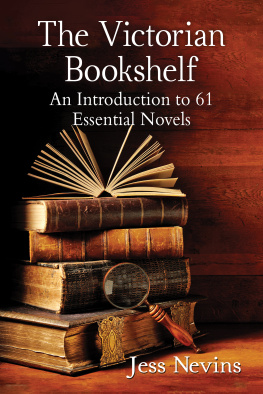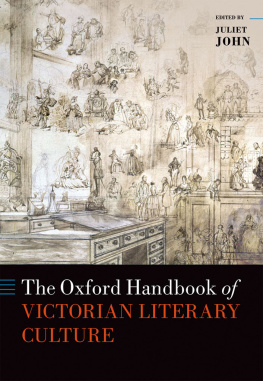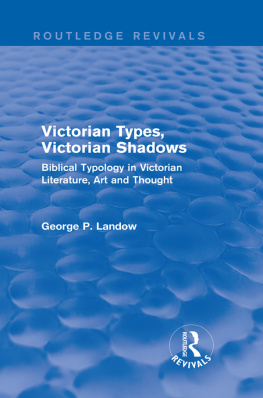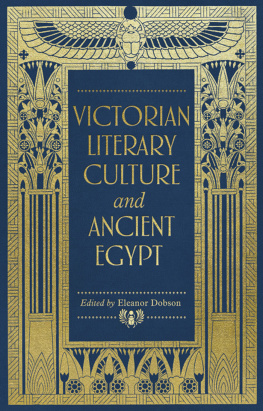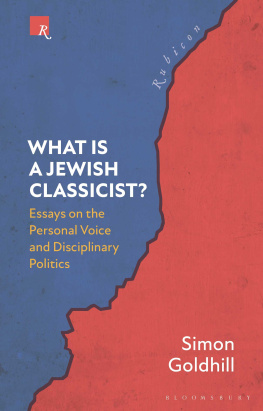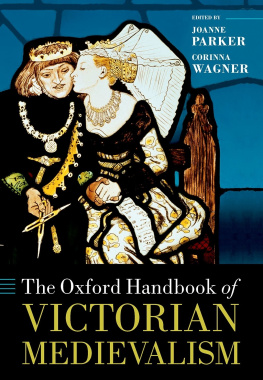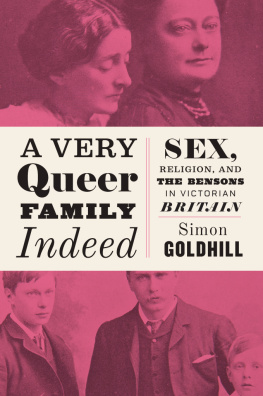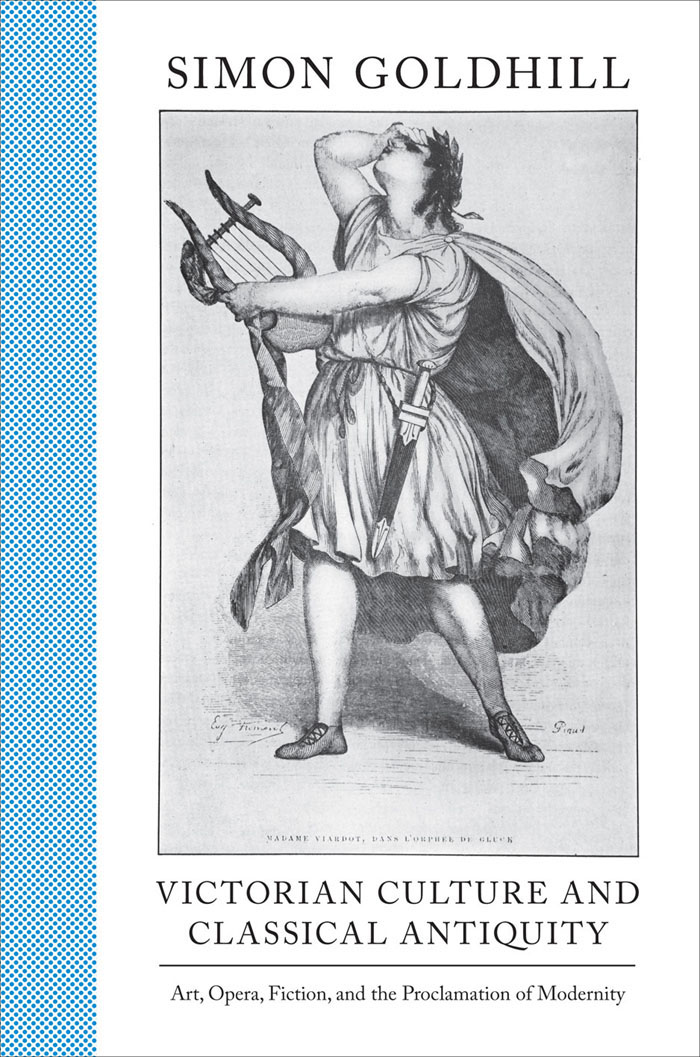VICTORIAN CULTURE AND CLASSICAL ANTIQUITY
MARTIN CLASSICAL LECTURES
The Martin Classical Lectures are delivered annually at Oberlin College through a foundation established by his many friends in honor of Charles Beebe Martin, for forty-five years a teacher of classical literature and art at Oberlin.
John Peradotto, Man in the Middle Voice: Name and Narration in the Odyssey
Martha C. Nussbaum, The Therapy of Desire: Theory and Practice in Hellenistic Ethics
Josiah Ober, Political Dissent in Democratic Athens: Intellectual Critics of Popular Rule
Anne Carson, Economy of the Unlost: (Reading Simonides of Keos with Paul Celan)
Helene P. Foley, Female Acts in Greek Tragedy
Mark W. Edwards, Sound, Sense, and Rhythm: Listening to Greek and Latin Poetry
Michael C. J. Putnam, Poetic Interplay: Catullus and Horace
Julia Haig Gaisser, The Fortunes of Apuleius and the Golden Ass: A Study in Transmission and Reception
Kenneth J. Reckford, Recognizing Persius
Leslie Kurke, Aesopic Conversations: Popular Tradition, Cultural Dialogue, and the Invention of Greek Prose
Erich Gruen, Rethinking the Other in Antiquity
Simon Goldhill, Victorian Culture and Classical Antiquity: Art, Opera, Fiction, and the Proclamation of Modernity
VICTORIAN CULTURE AND
CLASSICAL ANTIQUITY
Art, Opera, Fiction, and the Proclamation
of Modernity
Simon Goldhill
PRINCETON UNIVERSITY PRESS
PRINCETON AND OXFORD
Copyright 2011 Princeton University Press
Requests for permission to reproduce material from this work should be sent to Permissions, Princeton University Press
Published by Princeton University Press, 41 William Street, Princeton, New Jersey 08540
In the United Kingdom: Princeton University Press, 6 Oxford Street, Woodstock, Oxfordshire OX20 1TW
press.princeton.edu
All Rights Reserved
Library of Congress Cataloging-in-Publication Data
Goldhill, Simon.
Victorian culture and classical antiquity: art, opera, fiction, and the proclamation of modernity / Simon Goldhill.
p. cm. (Martin classical lectures)
Includes bibliographical references and index.
ISBN 978-0-691-14984-4 (acid-free paper) 1. Great BritainIntellectual life19th century. 2. Great BritainCivilization19th century. 3. English literature19th centuryClassical influences. 4. Art, VictorianGreat Britain. 5. Art, BritishClassical influences. 6. OperaClassical influences. I. Title. II. Series.
DA550.G65 2011 |
941.081dc22 | 2010049711 |
British Library Cataloging-in-Publication Data is available
This book has been composed in Janson Text LT STD
Printed on acid-free paper.
Printed in the United States of America
10 9 8 7 6 5 4 3 2 1
CONTENTS
ILLUSTRATIONS
Figures
Plates
Introduction
DISCIPLINE AND REVOLUTION: CLASSICS IN VICTORIAN CULTURE
Victorian Culture and Classical Antiquity is intended to make a contribution to three major areas of scholarship, nineteenth-century studies, Classics, and what is often called Reception Studies. A short version of the agenda will seem straightforward enough: Victorian culture was obsessed with the classical past, as nineteenth-century self-consciousness about its own moment in history combined with an idealism focused on the glories of Greece and the splendor of Rome to make classical antiquity a deeply privileged and deeply contested arena for cultural (self-)expression. This is, or should be, a fundamental area of concern for nineteenth-century scholars. Classics as a discipline has always been interested in its own development, and it has supported the history of classical scholarship as a small but lovingly tended genre within the field; and there are few centuries as important for classicists self-awareness as the nineteenth, whether we focus on scholarship itself or on the classicists complicity with imperialism, racism, and nationalism. This is, or should be, highly pertinent for working classicists, explaining how we have come to be who we currently are. Reception Studiesoften called by classicists the history of the classical traditionhas become in recent years both a growth field and an area where methodological issues central to the very idea of classics are hotly debated: where better to test the waters then in the Victorian engagement with Classical Antiquity?
My dull title inevitably threatens such apparently self-evident delineations of my projects questions. But this book also sets out to produce some new questions and new understandings in each of these areas. For example, let us think for a moment about the discipline of Classics and its place in Victorian culture.
One lasting icon of the nineteenth-centurys new organization of the discipline of Classics is Benjamin Jowett, Master of Balliol College, Oxford, instigator of the tutorial system of teaching, translator of Plato, and public intellectual who articulates as strongly as anyone the connection between university education and public life.
It is not hard to see why Classics has this reputation. At least it is not hard to see why this has become the standard story, and why Classics functions as the paradigmatic discipline for thinking through the relations between disciplinarization and the ideological and institutional structures of authority, privilege, and education, especially in the Victorian era. By the nineteenth century, Classicsby which is meant primarily the learning of Greek and Latin, the reading of the great texts of the canon, and the study of ancient historytook up a major part of the curriculum in the burgeoning public schools. According to the Clarendon Report, the average public school spent eleven of its twenty weekly lessons, every week, on classics (compared to two for drawing and two for science, say). Most pupils who passed through elite education learned reams of Greek and Latin poetry by heart. Classics was simply the furniture of the mind for the Victorian upper classes, often somewhat shabby or threadbare furniture, sometimes thrown out on the rag-and-bone cart, but always a recognizable style of decoration, whether homely or grand.
So Classics can easily be seen as the archetype of discipline formation in the nineteenth century, and so it has been discussed by some very fine modern studies: Classics was central to the curriculum, its place as a subject was publicly and extensively discussed, its increasing institutional structures were debated and a major part of educational reform, it proved itself capable of absorbing new sciences like archaeology or art history into its learning, and it provides the perfect example of the connection of education and privilege mutually supporting each other, as the classically educated moved into the church, the government, and the arts of empire. The anecdote, as ever, is the clincher: the famous one word message of triumph sent by Napier back home read just peccaviI have sinned, that is, I have captured the Indian province of Sindh. The point is not whether the punning message was really sent, but its loving circulation, from Punch in 1844 onward, among generations of guys to indicate how the gentleman soldier of empire does witticismwhich articulates precisely enough the iconic and complicit image of Latinist as imperialist.
This story of the discipline is standard, and much beloved of anyone who feels like attacking Classics to make themselves feel modern or self-satisfied in their own political stance. And it is a story that is easy to tell because it does accurately represent one strand of classics as a nineteenth-century discipline. But there are some very strong challenges to it as a story, which constitute a need for a major redrafting of the account. I want to express three of these first, before moving on to what I will argue is a major gap in the current versions of the disciplinary formation of Victorian Classics.


